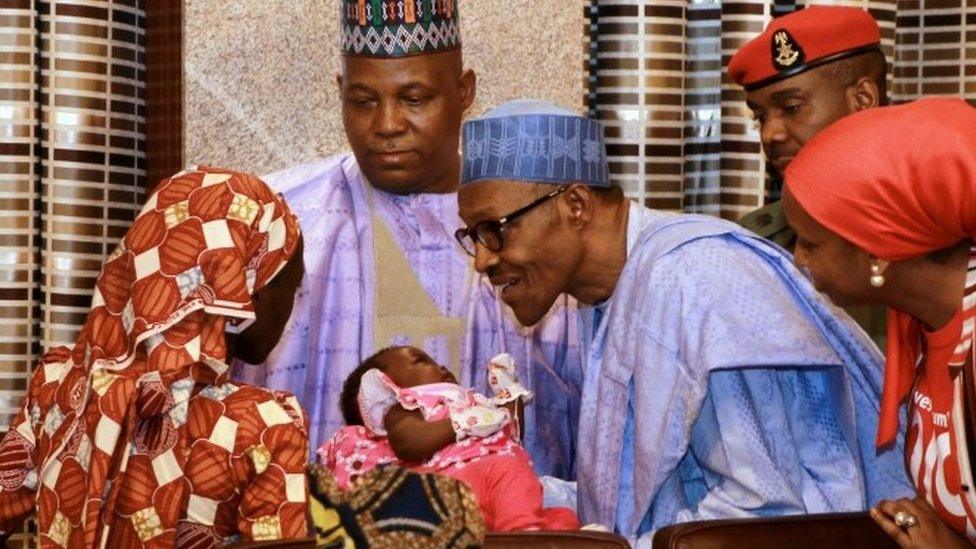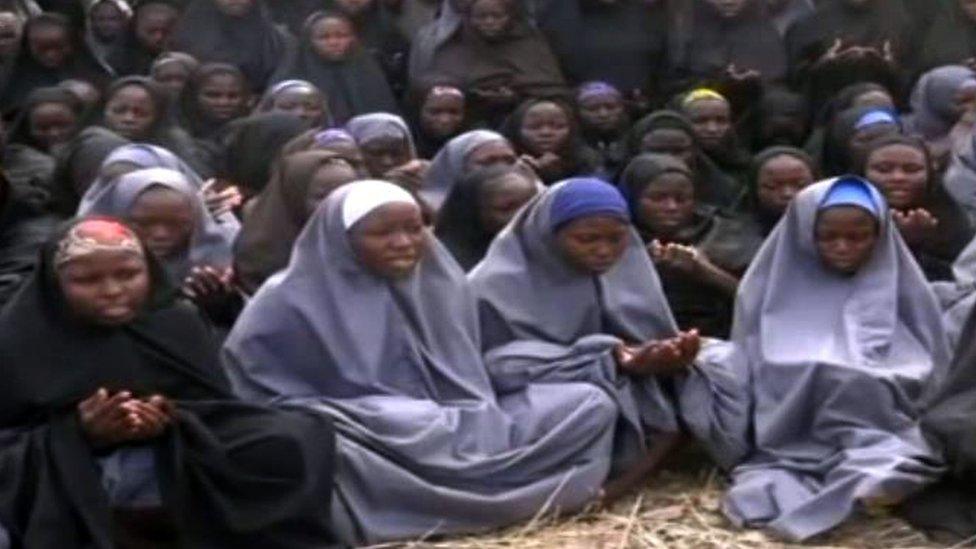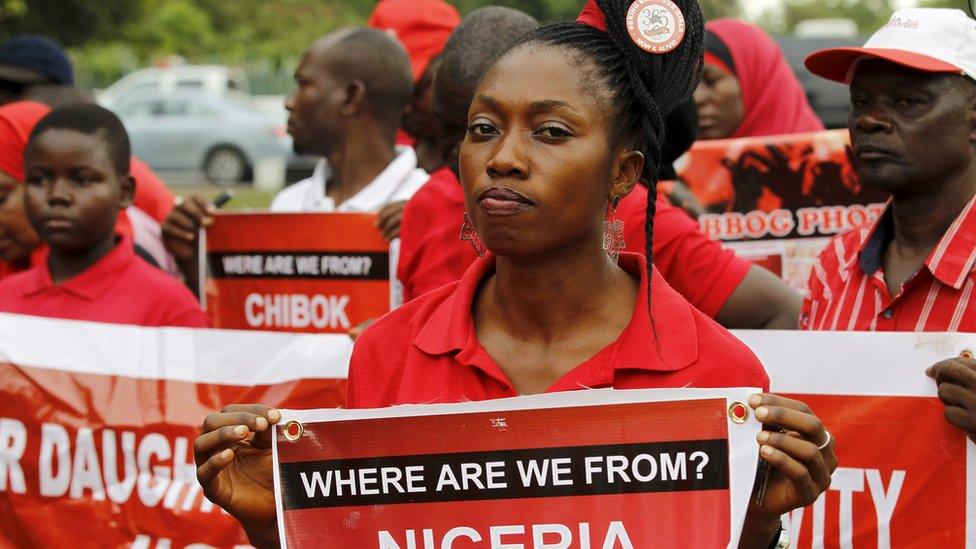Why Nigeria was quick to trumpet the Chibok rescue
- Published

The rescued Chibok girl met President Buhari
After two years of near silence, it was big news this week when the first of the missing Chibok schoolgirls was rescued by army-backed vigilantes.
In the past, the Nigerian military has claimed to have found some of the girls, before backtracking.
After their kidnapping by the militant Islamist group Boko Haram in 2014, the then-Chief of Defense Staff, Alex Badeh, famously insisted the army knew where the girls were and would bring them back soon.
That of course did not happen. Western allies also reportedly complained that Nigeria did not act on intelligence they had provided.
All this criticism might explain why the army would want to show how their operations had resulted in the freedom of one of the group.
Official statements said the freed Chibok Girl had been rescued in a military operation.
But a source told the BBC she said she was found by a vigilante group in a village where she had sought refuge from Boko Haram.

The girls until now have only been seen in videos released by their captors
It was from there she was taken into army custody, and the Nigerian government sprung into action.
After being reunited with her family, the girl was handed over to the Borno State government and then flown to the capital, Abuja, to meet President Muhammadu Buhari and appear before the world's media.
By this time, photos were circulating of her with her four-month-old baby and a man who claimed to be her husband.
Some critics were outraged that she could have found love with a man who could have been one of her captors.
She says the man was a captive who was forced to fight for Boko Haram and was made her husband before he absconded and escaped with her.
Others also questioned why the spotlight needed to be shone on her so soon after her ordeal.

More on the Chibok abductions:

The conversations were soon interrupted by a further announcement from the army - that it had found another Chibok girl.
Coming so soon after the news of the first one, there was seemingly little room to doubt the story.
The army named her and released a photo as proof. But questions soon arose.
The army said she was in her first year of secondary school at the time of her abduction, but it was well known that the girls who had inspired the Bring Back Our Girls campaign had all been final year students.
Representatives of the missing girls' parents said they did not recognise her and that she was not on their missing list.
They said she was indeed a student at the same school, but Boko Haram seized her at a different time and location.

The Chibok kidnappings sparked a global campaign
This raised more questions still because. while 97 women and children were also rescued, it was she who immediately shot into the limelight.
She will most likely now fade into obscurity. The others who were saved remain faceless and will possibly end up in a camp for displaced people.
It appears that despite the progress the military has made in fighting Boko Haram, they realised the world was more interested in the Chibok Girls.
The media has made little of army reports that troops had rescued almost 12,000 abductees from Boko Haram between February and April, including a group of 10,000 refugees stranded near the border with Cameroon.
Those people had no-one to campaign for them.